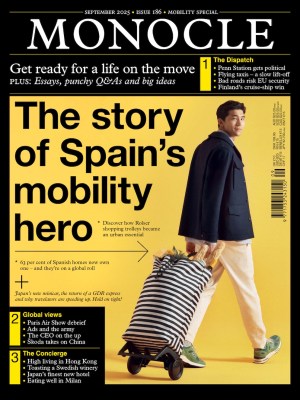West Coast cities are among the US’s most reliably Democratic bastions. Not a single Republican holds statewide office in California, Oregon or Washington, forming what political strategists call the “blue wall” on the Pacific. Understandably, then, it’s here that backlash against Elon Musk has been the most vociferous. Ever since the South African embraced Donald Trump and the Maga movement, and dismantled the federal bureaucracy via the so-called Department of Government Efficiency (Doge), his stock has plummeted in the eyes of West Coast denizens who once admired him.
The activist network #TeslaTakedown continues to boast weekly protests outside Tesla dealerships from Seattle to San Francisco, more than two months after Musk left government and returned to his business empire. Global Tesla sales saw their biggest-ever drop in the first quarter and dropped another 13.5% in the second quarter, a reversal of fortune that stung in the car brand’s most popular precincts. California accounts for the majority of the company’s sales nationwide and Washington state once boasted the highest per capita Tesla registrations.
Now, owners of the controversial electric car are quick to affix bumper stickers affirming that they purchased their Model S before the company’s owner made his political allegiances known. With a shocking 46 per cent of Tesla owners reporting acts of vandalism in one market research study, some drivers have even paid specialists to make their Musk-mobiles appear to be German-made Audis.
Los Angeles hosts more Tesla protests than any other city, which can make anti-Musk mania seem de rigueur in the City of Angels – except for a pocket of southern California.
In the small cities of El Segundo and Hawthorne, both part of Los Angeles County, there is a thriving community of engineers and scientists who dream of going to space. Their north star is SpaceX, Musk’s commercial spaceflight company, whose successful invention of a reusable rocket capable of ferrying satellites into orbit far cheaper than Nasa ever did, has birthed an entire industry.

While Musk announced last year that he was moving the company’s HQ to Texas over political spats with the California government, not everyone enamoured with exploring the solar system followed. From the beach to the mountains, the Golden State still holds plenty of appeal over Lone Star scrubland. The resulting community is a macho inverse of Silicon Valley, where building “hard tech” tangible objects – from drones to satellites to rocket ships – is prized and namby-pamby software is derided. And in Musk, whose first successful Falcon 9 rocket looms over the area like a neolithic monolith, these entrepreneurs who eschew bits and bytes in favour of nuts and bolts have a hero untarnished by any of his recent forays into national politics.
The starkest display of admiration I saw in Hawthorne (when reporting on the aerospace startup bringing sci-fi to life) came in the form of a Cybertruck, its proud owner displaying the license plate “BLD2MRS”. Colonising Mars, of course, being one of Musk’s extraterrestrial obsessions. While the Left Coast political mainstream brandishes protest placards comparing Musk to a Nazi, it’s worth noting that not everyone drawn to the Pacific’s salt air sings from the same hymn sheet.



